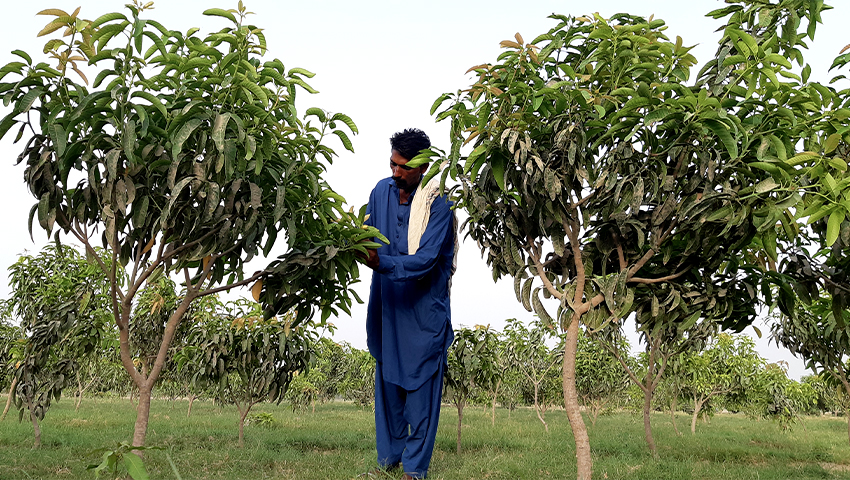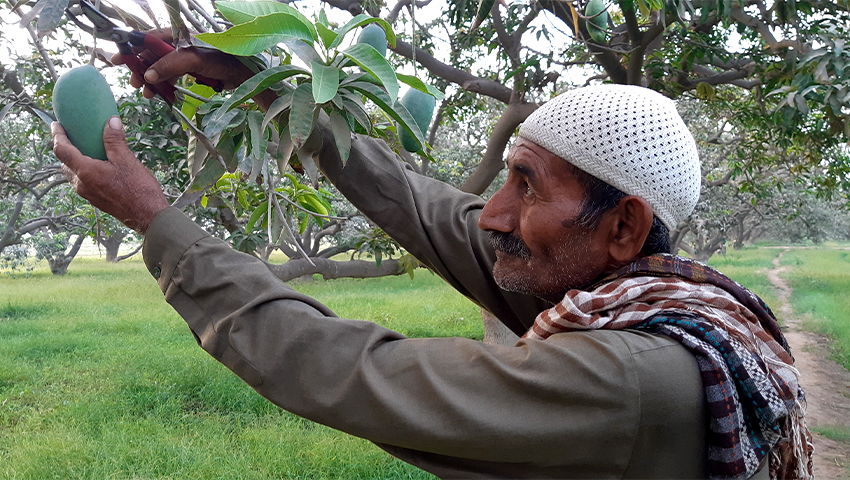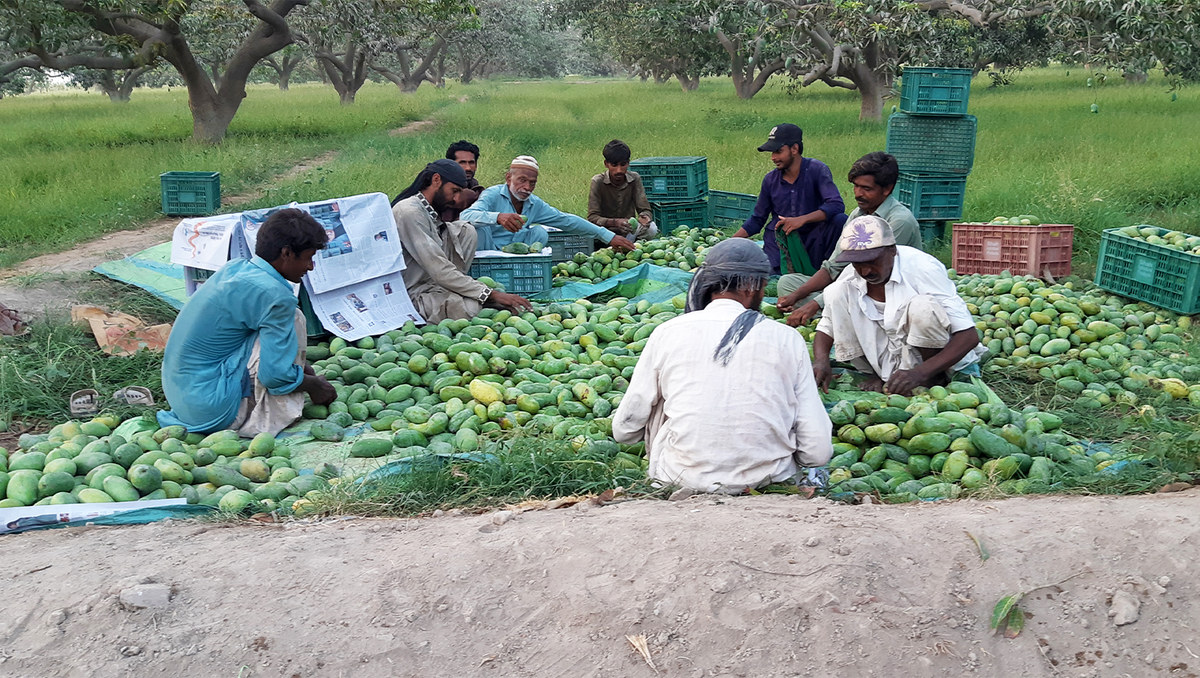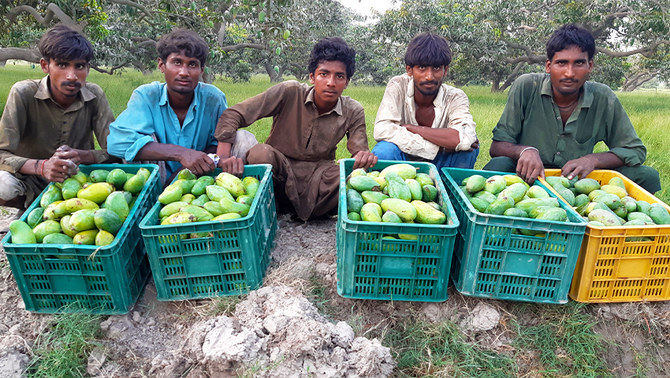TANDO ALLAHYAR: After a decade of declining harvest, mango growers in Pakistan’s southern Sindh province are pinning their hopes on a new farming technique that would allow them to increase their fruit yield up to six times, several growers and experts said.
Pakistan is the world’s sixth largest mango producer, with annual production volume of about 1.7 million tons. While most of the harvest comes from Punjab, Sindh province has the second-largest yield and is known for the Sindhri variety of the mango, famous for its honey-like sweetness and deep, thin yellow peel.
But farmers are increasingly sounding the alarm on declining crop yield.
Sindh cultivated mangoes on 59,215 hectares of land and produced 381,269 metric tons in 2010. Provincial agricultural data shows this yield reduced to 329,300 metric tons by 2019.
Realizing that a major reason for the decline is outdated farming practices, one grower, Mahmood Nawaz Shah from Tando Allahyar district, decided to try something new at his Genuine Delight Farms.
In 2019, he initiated a pilot project to cultivate new orchards under the small tree system (STS) on four acres, or 1.6 hectares, of land, using a pruning technique that keeps the height of the mango plants at nearly nine feet, making their management easier and helping to accommodate more trees in a smaller area.
“STS can revolutionize the quantum of our mango production,” Shah, who also represents a provincial farmers’ body, the Sindh Abadgar Board, told Arab News.
“We can increase our mango production some five times in this country,” he added, explaining that while average mango yield per acre was five metric tons from large trees, an average of 25 to 30 metric tons could be harvested from the same area using the small tree system.

A worker is seen trimming a mango tree planted in Tando Allahyar in Pakistan's Sindh province on May 24, 2021. (AN photo by Zulfiqar Kunbhar)
According to estimates by the Sindh Abadgar Board, the small tree system is currently being used on only 1,618 hectares (4,000 acres) of Pakistan’s total mango cultivation area of 167,000 hectares. In Sindh, only ten growers have so far adopted the method.
“We are far behind when it comes to modernizing our farming structures and techniques,” Dr. Noor-un-Nisa Memon, a faculty member at the Sindh Agriculture University in Tando Jam, said.
It was high time, she said, that old mango orchards were replaced with new ones but farmers in Sindh were reluctant to prune their trees, thinking it would reduce their yield.

A laborer cuts a mango from an orchard at a farm in Tando Allahyar in Pakistan's Sindh province on May 24, 2021. (AN photo by Zulfiqar Kunbhar)
Farmers, however, say they are willing to adopt new techniques but cannot do it without government support as most are small-scale growers.
“It is extremely important to adopt the small tree system to deal with the situation,” Mir Zafarullah Talpur, a grower from Sindh’s largest mango growing Mirpurkhas district, told Arab News. “The government should arrange an extensive awareness program for farmers and provide them subsidies and installment facilities so they can import modern instruments.”
Hidayatullah ChHajjro, Director General Agriculture Extension, said the provincial administration had already arranged several training sessions to raise awareness among mango growers about new farming techniques but agreed that subsidies need to be given to farmers who wanted to import essential gadgets and machinery.
“By adopting a comprehensive approach, such as the small tree system, not only can we reclaim our previous production level but also enhance it further,” ChHajjro said.

Laborers sort mangoes before packing them into boxes at a farm in Tando Allahyar in Pakistan's Sindh province on May 24, 2021. (AN photo by Zulfiqar Kunbhar)
Shah, who introduced the new farming method to Sindh, is hopeful the trend will gain momentum in the next few years.
“There are farmers who are waiting for the results,” he said. “Most of the farmers initiated the STS in 2019 and it requires at least five years for trees to develop fruit.”
“If the result comes out positively, as per our expectations,” he said, “there are chances that mango areas will see a sudden transformation, uprooting old practices and adopting new techniques.”















